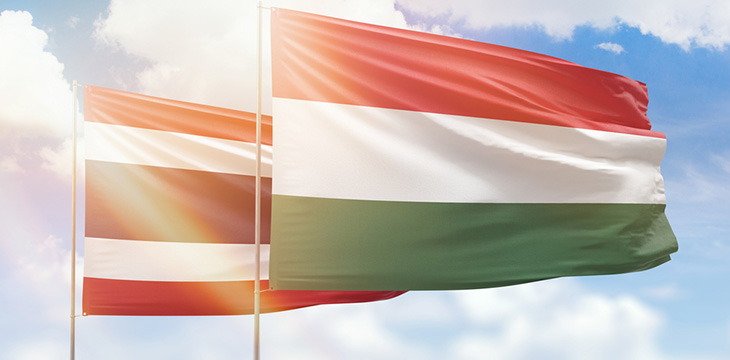|
Getting your Trinity Audio player ready...
|
Financial technology bodies of both Thailand and Hungary have entered into a bilateral partnership to explore the use of blockchain technology in their countries.
The Memorandum of Understanding (MOU) was signed by the Thai Fintech Association (TFA) and the Hungarian Blockchain Coalition on October 25. According to a Facebook post from the Hungarian embassy in Bangkok, the move allowed both associations to “share experiences, best practices and explore areas potentially beneficial for direct cooperation.”
The groundbreaking event introduced several Hungarian companies in the digital assets industry into Thailand’s growing ecosystem. Firms like WhiteHat, Family Finances, and Digital Farmers Market were urged by Chonladet Khemarattana, President of the TFA, to seize the occasion to make forays into Thailand.
Khemarattana stated that international collaboration would be instrumental in improving the local virtual assets industry while noting that Thailand is one of the fastest-growing countries in terms of adoption. He stated that Thailand was ranked 8th in the Chainalysis 2022 Global Crypto Adoption Index and claimed that 20% of the virtual asset users are in Thailand.
Despite the collaboration from both organizations, the use of blockchain and virtual assets in Hungary and Thailand faces stern tests from regulators. In Thailand, regulators are increasingly cracking down on digital asset lending platforms while service providers are staring at a potential ban on the provision of depository services.
Hungary’s central bank governor Gyorgy Matolcy urged the European Union (EU) to impose a blanket ban on digital asset trading across the region on the grounds that it was “speculative” and that it “serviced illegal activity.”
No to virtual currencies, but yes to DLT
While virtual currencies are facing tightening nooses in both jurisdictions, the use of DLT is receiving government patronage. Thailand’s central bank is leaning on the technology to explore a central bank digital currency (CBDC), with the pilot starting toward the end of the year.
Matolcy appears to be receptive towards CBDCs, noting that they “might be one of the next steps for digital currency to become a form of payment” but warned that a “learning-by-doing” strategy should be adopted.
In the EU, of which Hungary is a member, steady progress is being made toward using tokenized securities—virtual assets to represent stocks and bonds using DLT. The European Securities and Markets Authority (ESMA) has been given the operational responsibility to explore their usage for three years.
Watch: The BSV Global Blockchain Convention panel, The Future of Financial Services on Blockchain: More Efficiency & Inclusion

 02-22-2026
02-22-2026 




